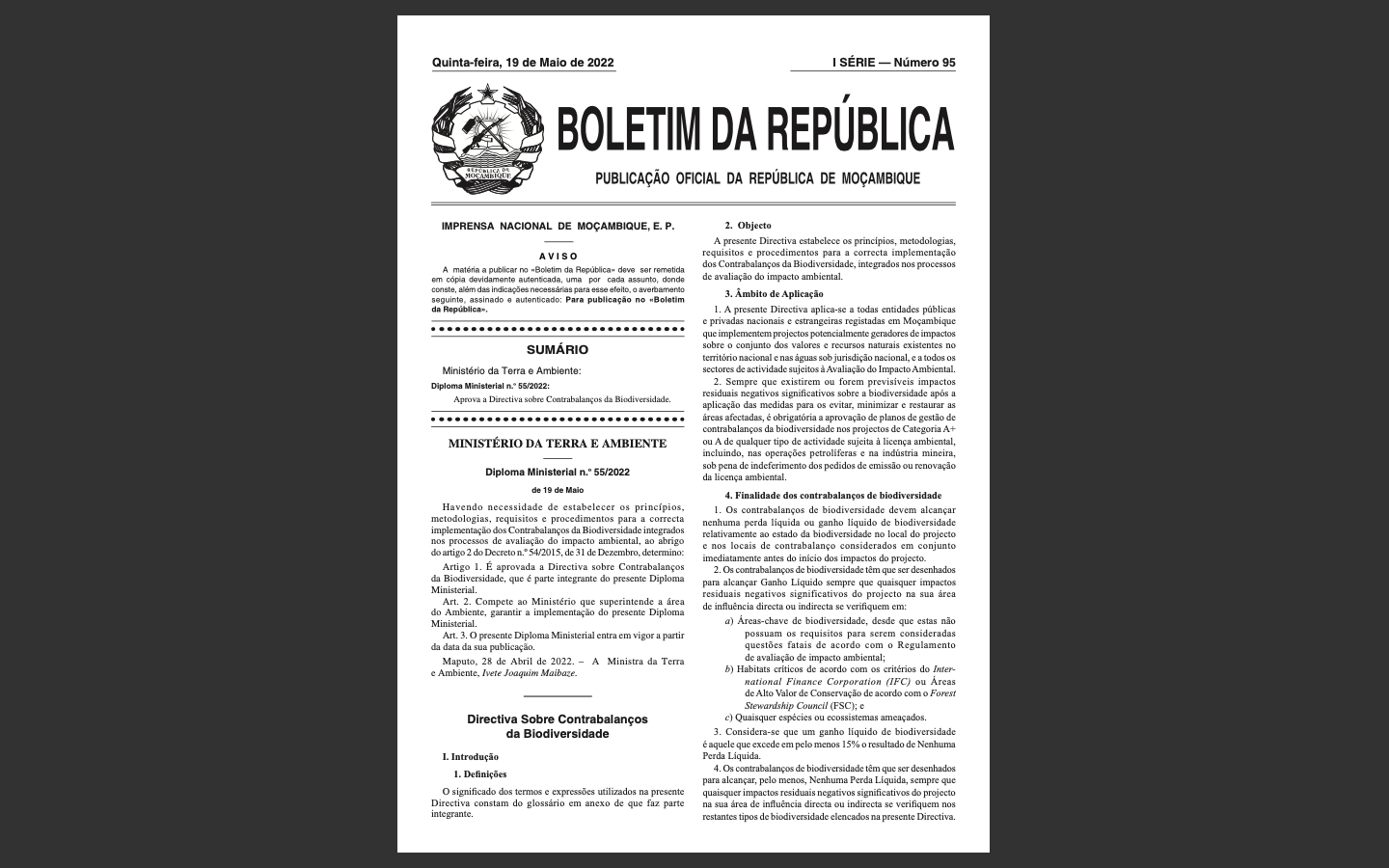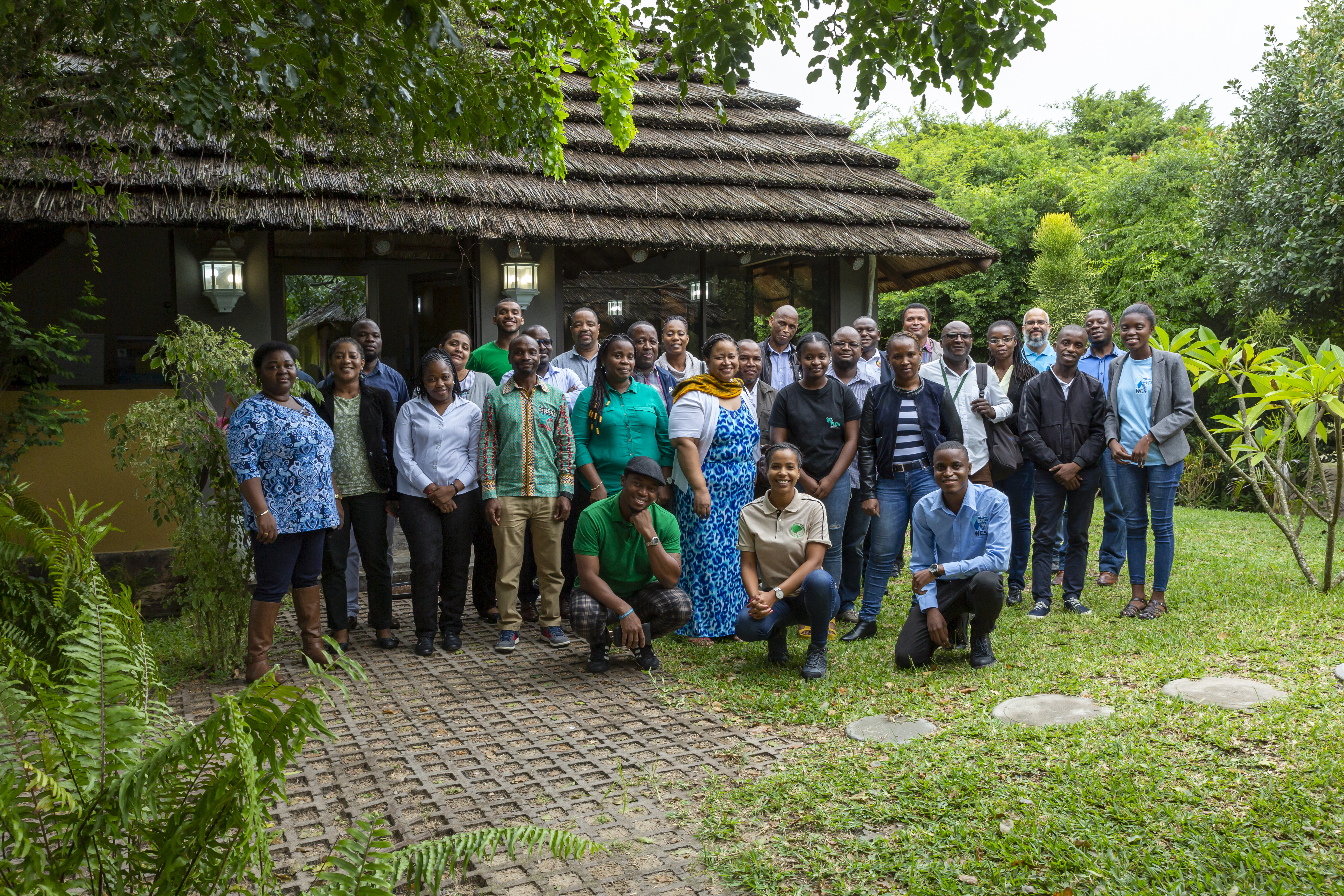On 19th May 2022, the Ministerial Diploma 55/2022 on the implementation of Biodiversity Offsets was published in the Mozambican Official Gazette. This legal instrument arises as a requirement of the Environmental Impact Regulation (Decree 54/2015 of 31 December) and will now enable the Government of Mozambique to ensure that development projects of category A+ or A that cause residual negative impacts on biodiversity considered very important (e.g. threatened species or ecosystems) implement biodiversity offset management plans (conservation projects) to restore/rehabilitate biodiversity equivalent to that lost in a location outside the direct influence of their development project.

The mechanism stipulated by the diploma is innovative, as developers will contribute to the achievement of the biodiversity targets defined by the country through biodiversity offsets. Offset receiving areas can be of two types: i) conservation areas that are under-funded and that are not achieving the conservation objectives for which they were created or; ii) important areas for biodiversity such as Key Biodiversity Areas (KBAs), Forest Reserves, RAMSAR sites (wetlands), among others.
It is important to note that biodiversity offsets can only be approved if developers have demonstrated that they have implemented all measures to avoid and minimise significant negative impacts of their projects and have restored the intervened areas after the construction phase.
The responsibility for implementing this Diploma lies with the Ministry of Land and Environment (MTA) represented by the Environmental Impact Assessment Authority - the National Directorate for the Environment (DINAB), which recently established the Division on Biodiversity Offset Assessment and Monitoring and has received technical support, capacity building, specialised technical staff and various support tools, such as the new biodiversity portal (www.sibmoz.gov.mz ).

These initiatives are led by DINAB with technical support from the COMBO+ Program, an international initiative led by the Wildlife Conservation Society (WCS), funded by the French Development Agency (AFD) and the French Global Environment Facility (FFEM) and in partnership with the Mozambican Foundation for Biodiversity Conservation (BIOFUND) funded by the World Bank/MozBio 2 Project and UNDP/BIOSFAC Project. The COMBO+ program will continue until 2025, supporting DINAB and the Government of Mozambique in building capacity for the implementation of the new Biodiversity Offsets Ministerial Diploma.